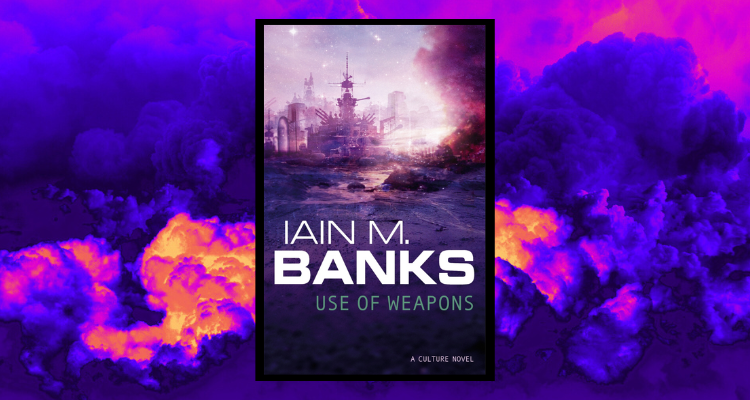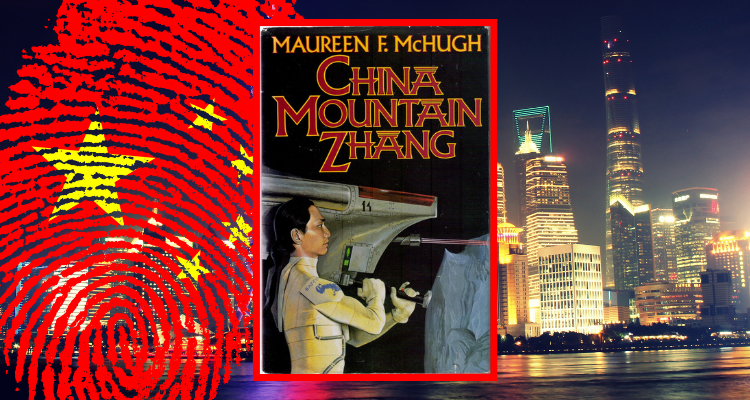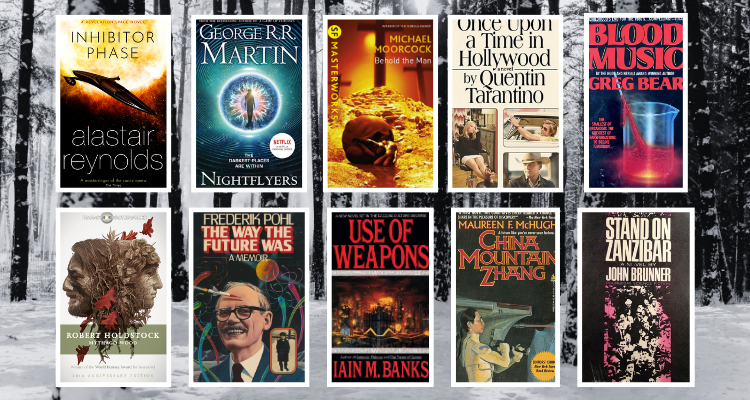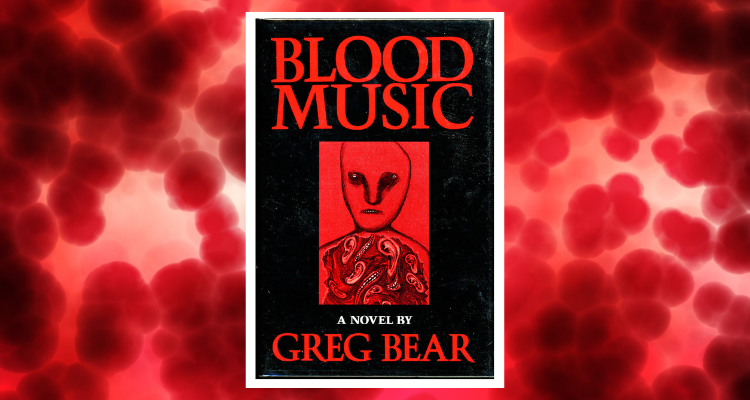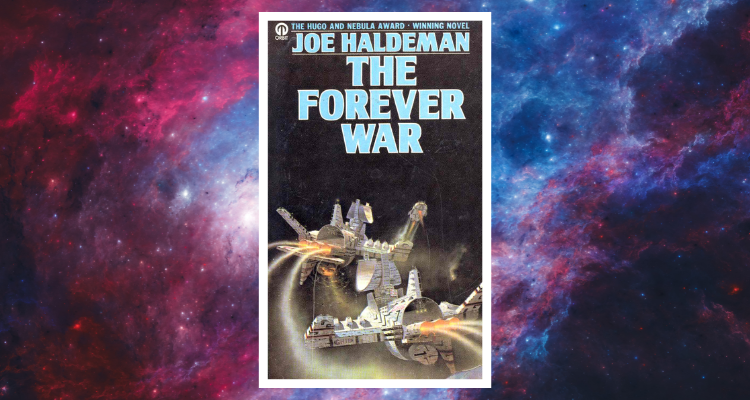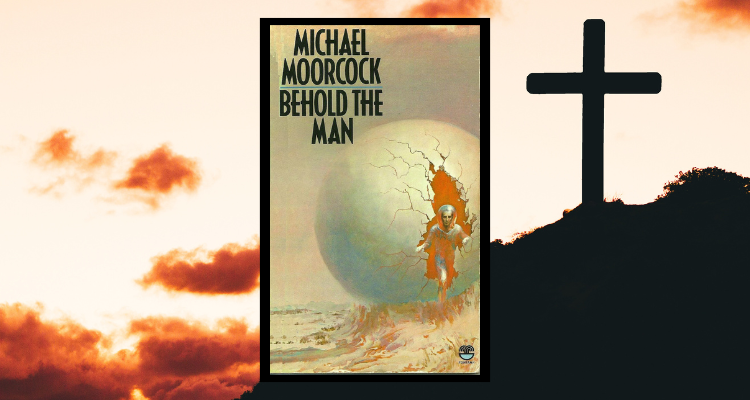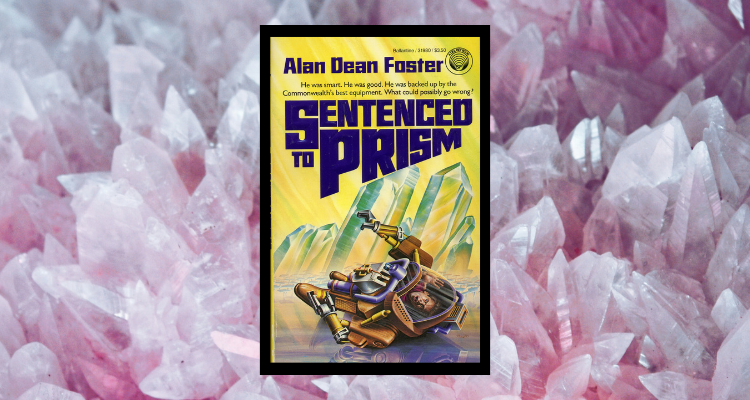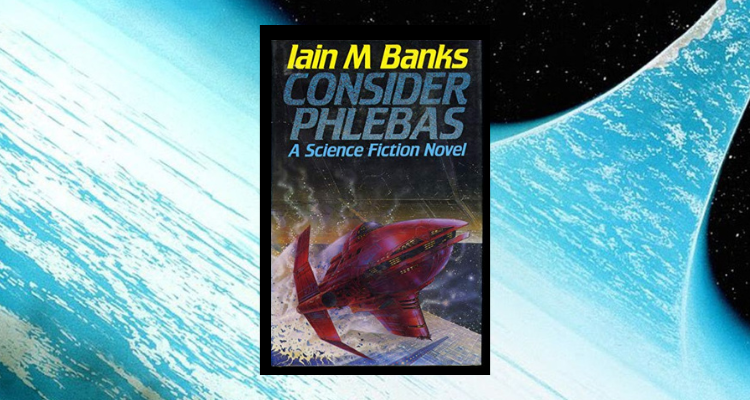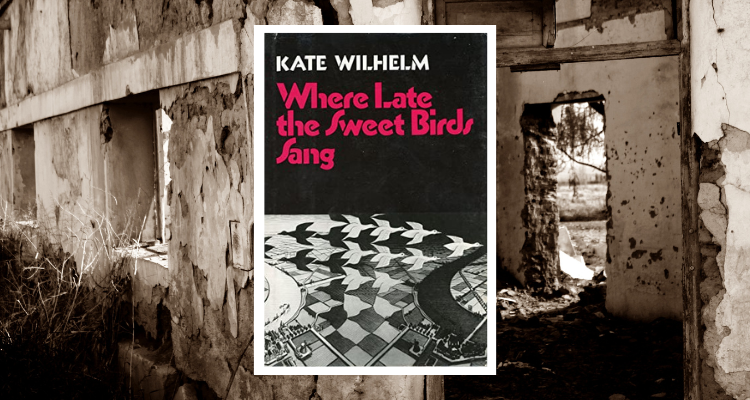|
Across its vast orbital habitats and immense starships, the Culture supports a population of many billions. Within this multitude, only a tiny number of people make up Contact, the Culture’s diplomatic and military arm. Within that elite there is another elite. Special Circumstances is the shadowy group operating on the Culture’s ragged edge, where the civilisation’s highly-evolved morality weakens or breaks down altogether.
The Special Circumstances agent Diziet Sma and her loyal drone Skaffen-Amtiskaw have long relied on a particular operative. Born outside the Culture, this man is the consummate spy, soldier, and strategist. He is adept with every weapon, with every ruthless tactic required to pull off some of the Culture’s most Byzantine schemes. His name is Cheradenine Zakalwe. Use of Weapons is the third novel in Iain M. Banks’ beloved Culture series. While it was ultimately released in 1990, the first version of the book had been written 16 years earlier in 1974. With the encouragement of fellow science fiction writer Ken MacLeod, Banks returned to the story and radically re-worked it, notably by simplifying its dizzying structure. Today, the novel is probably the most popular and acclaimed of the ten books in the series. It is a fascinating character study of Zakalwe, an eye-opening insight into the nature of the Culture, and a thoughtful look at conflict, responsibility, and guilt.
0 Comments
In a talk given to the Philadelphia Science Fiction Society, Maureen F. McHugh identified a pervasive trend in SF:
“…something required for the genre or genres, whether to reestablish order or transcend it, is the hero who changes everything. [...] It doesn't matter if the story is on the scale of a city or a planet or the galaxy, sf is the story of the outsider who is smarter, mutated, or endowed with special powers and therefore is the person, the only person who can make the difference.”
In her debut novel China Mountain Zhang, McHugh set out to prove that a world-changing hero is not a precondition for an interesting science fiction story. The book is set at some point in the 22nd century, in a world in which the global balance of power has shifted dramatically. The United States has been brought low by a Second Great Depression and a bloody civil war. By contrast, socialist China is the preeminent superpower, extending its influence all the way to new colonies on Mars.
Zhang Zhongshan is a construction technician working in New York City. He has no towering ambitions, nor any desire to change his world. He wants only to make a good life for himself, which is complicated by his status as a gay man living under a regime in which homosexuality is illegal. China Mountain Zhang is not about changing the world, but about finding a way to live in it. 2023 has been another fascinating year of reading for me. Once again, I set out to read 50 books and once again, my main focus has been on science fiction. This year, seven of my top ten are science fiction novels; one is a non-fiction book by an SF author, one is the fantasy novel Mythago Wood (1984), and one (surprisingly) is by one Quentin Tarantino. I strongly recommend all of these books - if you’ve read them, and have thoughts about them, I’d be interested to hear from you in the comments below.
American science fiction author Greg Bear, who passed away in 2022, had a major success with his 1985 novel Blood Music. An expansion of his award-winning 1983 short story, the novel is themed around emerging sciences of the 1980s: biotechnology and genetic engineering. Both unsettling and in a way inspiring, the book confronts the massive implications of a new kind of artificial, biological intelligence run amok.
In the story, a renegade scientist based in a realistic, contemporary California uses his own lymphocytes to create what he calls “noocytes”, or thinking cells. What begins as an experiment in information processing brings seismic changes first to the scientist’s body, then to the people around him, and later to the whole world. Blood Music comprises a series of frightening transformations, and explores themes of consciousness, individuality, and the nature of reality itself.
The first step was the development of advanced starships. The second step was the discovery of “collapsars”, which defy the laws of physics and make faster-than-light travel possible. With these developments, by the end of the 20th century humanity is poised to master the stars. There is only one thing standing in the way - the aliens they dub Taurans. Responsible for the destruction of a number of Earth’s colony ships, these creatures squat malevolently on the worlds around key collapsars.
To combat the threat, the Elite Conscription Act is used to forge a new, interstellar fighting force. Earth’s brightest and best are equipped with the latest weapons, and sent to fight on desolate, distant worlds with low gravity and lakes of liquid helium. Their mission is to find and defeat the Taurans, and make the galaxy safe for human expansion. This is a new kind of war. Travelling at relativistic speeds on the way to collapsars causes powerful time dilation effects, cutting the soldiers off from their families. Within just a few years of subjective time, the Taurans might have advanced their technology by several generations. And if the troops ever get back to Earth, they may not even recognise it - or what remains of the human species. The war with the Taurans stretches on for a thousand years, from Earth’s frame of reference - but was it all worthwhile? Originally published in book form in 1974, The Forever War is a brilliant science fiction novel by American author and Vietnam War veteran Joe Haldeman. While frequently compared with another iconic military SF novel, Robert A. Heinlein’s Starship Troopers (1959), it deserves to be recognised on its own terms. Peter F. Hamilton has called it “a damn near perfect book”, with some justification. This is a science fiction novel that every fan of the genre ought to read.
Jernau Morat Gurgeh is a citizen of the Culture - one of many teeming billions in the post-scarcity interstellar civilisation. He has a special talent, however, which marks him out as unique. He is a game-player of legendary skill. Over his lifetime, he has mastered every card-, board-, and computer-based game that is known to the Culture. Constant success breeds boredom, and so Gurgeh becomes restless.
Eventually, he receives word of a remarkable new challenge which he is later forced to accept. His mission is to travel to the distant Empire of Azad, a decadent and cruel star-faring society which uses a game to determine its political hierarchy. The game of Azad is so dizzyingly complex that even Gurgeh may not be able to learn it during the years-long journey. When he arrives, he finds that there is more at stake than his reputation - the fate of civilisations may be on the table. The Player of Games is the second novel to be published in Iain M. Banks’ revered Culture cycle, following Consider Phlebas (1987). It is often thought to be one of the most popular of the books, and is sometimes suggested to be a good starting point. It is an engaging character study of Gurgeh, and a story which deals cleverly with themes of power, manipulation, and the nature of games.
It’s a common question - if you could travel in time, to what point in history would you go? For Karl Glogauer, the protagonist of Behold the Man, the answer is never in doubt. After meeting an eccentric scientist who has devised an improbable time machine, the troubled Karl volunteers to visit 28 AD in a bid to meet Jesus Christ. He discovers that the Nazarene can barely speak, let alone save mankind. Karl takes an extraordinary step and becomes the Jesus we know from the Bible - despite knowing where his actions will lead.
Originally published as a novella in New Worlds magazine in 1966, Behold the Man is one of the most bold and unique of all time travel stories. Michael Moorcock won the Nebula Award for Best Novella for his work, and subsequently extended it into a short novel which was published in 1969. This story is a classic of new wave science fiction, which Moorcock championed as editor of New Worlds at the time. It is a fast-paced and intriguing exploration of religious belief, psychology, and the quest for meaning.
The planet Earth is home to an immense variety of lifeforms, from the tiniest viruses and microbes up to the huge and complex mammals that roam the land and sea. This teeming glut of life is enormously varied, but in one respect it is monotonously uniform - all life on our planet employs a carbon-based biochemistry. For science fiction writers, the various hypothetical types of biochemistry have long been a source of inspiration. Chief amongst these is the notion that somewhere, on another world, life may have arisen that is based not on carbon but instead on another element with some similar properties: silicon.
Originally published in 1985, Sentenced to Prism is the fifth standalone entry in Alan Dean Foster’s long-running series of SF novels set in his Humanx Commonwealth universe. It represents a novel-length exploration of the idea of silicon-based life. The book depicts a distant planet that is rife with crystalline creatures, and looks into the implications this would have on body type, survival strategies, reproduction, communication, and the nature of intelligence. In classic Foster style, the novel is not only a headlong leap into alternative biology but is also an exciting adventure story about human survival on a bizarre and hostile world.
Scottish author Iain M. Banks has been much missed since he passed away in 2013. For science fiction readers, he made a tremendous impact with his Culture series: ten novels about a powerful, post-scarcity civilization set on a vast, interstellar scale. The first novel in the series to be published - and Banks’ first SF book - was Consider Phlebas, in April 1987.
While this sprawling space opera does introduce the Culture, it does so in an unusual way. It focuses not on the citizens of the Culture, or on its starships or institutions. Instead, the protagonist of the book is an implacable enemy of the Culture, working to secure its defeat in a galaxy-spanning war. By taking this approach, Banks worked to not only help readers view the Culture from outside, but also to subvert the established tropes of the space opera. In the process, Banks began an iconic series that occupied much of the rest of his working life; and helped to revitalise that same genre. While few Banks fans regard Consider Phlebas to be among the best of the series, it is an exciting SF adventure and a strong start to one of the most important and revered series in the whole genre.
By the time that Kate Wilhelm died in March 2018, she was arguably best known as a writer of mystery novels. She had first come to prominence, though, through her science fiction and had a long career in that genre beginning in 1956. Her career in SF peaked in the 1970s, when she contributed to the long-running Orbit series of anthologies, and taught at the famous Clarion Workshop for aspiring SF and fantasy writers. In both of these endeavours, she worked alongside her husband, Damon Knight (1922 - 2002).
In 1974, Wilhelm published the novella “Where Late the Sweet Birds Sang” in Orbit 15. Wilhelm added two further sections to the story, and published the result as a novel of the same title in 1976. Dealing with human cloning, community, and individuality in the aftermath of a global catastrophe, the novel proved to be the peak of Wilhelm’s success. It won the Hugo, Locus, and Jupiter Awards for Best Novel in 1977, and has come to be seen as one of the best SF novels focused on the topic of cloning. Today, Where Late the Sweet Birds sang is by far the most visible and well-known of Wilhelm’s SF works - likely due to its awards success. While it is often said that its outsized profile distracts from Wilhelm’s accomplished work in short fiction, it is an intriguing post-apocalyptic tale in its own right. |
About
I write about classic science fiction and occasionally fantasy; I sometimes make maps for Doom II; and I'm a contributor to the videogames site Entertainium, where I regularly review new games. Categories
All
|
